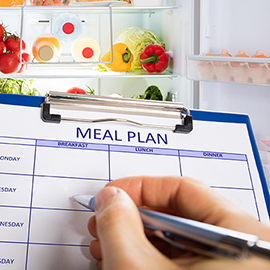 Weight loss surgery is a life changing experience, but it isn’t the end of the road. Weight loss surgery is a new beginning, and from there you need to consider the steps you can take to reach your ultimate weight loss goal. Sometimes, going back to the basics is the best way to reach your ultimate dream.
Weight loss surgery is a life changing experience, but it isn’t the end of the road. Weight loss surgery is a new beginning, and from there you need to consider the steps you can take to reach your ultimate weight loss goal. Sometimes, going back to the basics is the best way to reach your ultimate dream.
This is the case with keeping a weight loss journal. Journaling your dietary choices and exercise habits is one of the most often recommended dietary tips, regardless of how much weight you have to lose. The reason for this is that it works. So even after having weight loss surgery, you’ll still want to hold onto that food journal. Doing so can help you take control of your diet and weight loss program and guide you towards reaching your goals.
The Benefits of Dietary Journaling
Transitioning to a healthier way of living isn’t always simple. The process requires a lot of changes, and sometimes those changes can be difficult to keep track of. When you are getting started with your weight loss plan, it is a good idea to take on healthy habits that will help you track your progress and goals. This is why the National Weight Control Registry so highly recommends that you keep a food diary as you are losing weight.
A food diary is different from a typical journal. Rather than writing down everything that you think, do or feel, your food diary is a place where you simply log the foods that you eat. This means making a quick note of breakfast, lunch, dinner, and any snacks that you might have in between.
Keeping a food diary helps to improve your awareness of food choices. Often, we go for snacks when we are hungry and then don’t think about them later in the day. Sometimes, those snacks really add up. When you are losing weight, this mindless snacking could interfere with your ability to reach your weight loss goal. Keeping a food journal can give you the awareness you need to know what further dietary changes you need to make.
To keep a food journal, consider carrying around a small notebook in your pocket or bag. It doesn’t need to be large, as it is just a place to jot down what you are eating. If you aren’t interested in carrying around a physical journal, consider downloading a food journal phone app. This can help you keep track of how much you eat, and many apps will even help you track calories. This is helpful even after weight loss surgery, as it is a great way to track your food intake following your procedure and to help you become more mindful of your dietary habits as you lose weight.